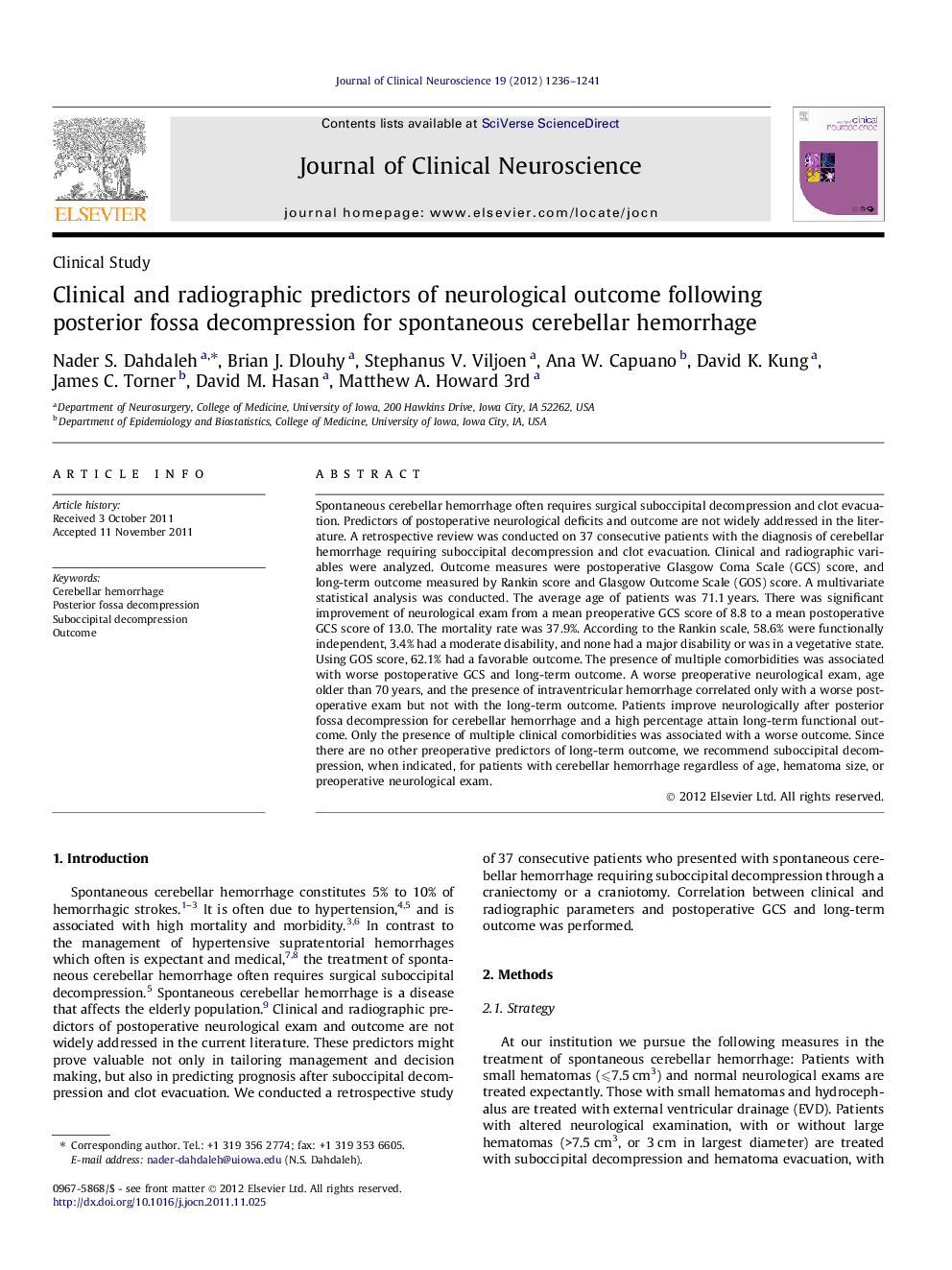| کد مقاله | کد نشریه | سال انتشار | مقاله انگلیسی | نسخه تمام متن |
|---|---|---|---|---|
| 3060383 | 1187448 | 2012 | 6 صفحه PDF | دانلود رایگان |

Spontaneous cerebellar hemorrhage often requires surgical suboccipital decompression and clot evacuation. Predictors of postoperative neurological deficits and outcome are not widely addressed in the literature. A retrospective review was conducted on 37 consecutive patients with the diagnosis of cerebellar hemorrhage requiring suboccipital decompression and clot evacuation. Clinical and radiographic variables were analyzed. Outcome measures were postoperative Glasgow Coma Scale (GCS) score, and long-term outcome measured by Rankin score and Glasgow Outcome Scale (GOS) score. A multivariate statistical analysis was conducted. The average age of patients was 71.1 years. There was significant improvement of neurological exam from a mean preoperative GCS score of 8.8 to a mean postoperative GCS score of 13.0. The mortality rate was 37.9%. According to the Rankin scale, 58.6% were functionally independent, 3.4% had a moderate disability, and none had a major disability or was in a vegetative state. Using GOS score, 62.1% had a favorable outcome. The presence of multiple comorbidities was associated with worse postoperative GCS and long-term outcome. A worse preoperative neurological exam, age older than 70 years, and the presence of intraventricular hemorrhage correlated only with a worse postoperative exam but not with the long-term outcome. Patients improve neurologically after posterior fossa decompression for cerebellar hemorrhage and a high percentage attain long-term functional outcome. Only the presence of multiple clinical comorbidities was associated with a worse outcome. Since there are no other preoperative predictors of long-term outcome, we recommend suboccipital decompression, when indicated, for patients with cerebellar hemorrhage regardless of age, hematoma size, or preoperative neurological exam.
Journal: Journal of Clinical Neuroscience - Volume 19, Issue 9, September 2012, Pages 1236–1241